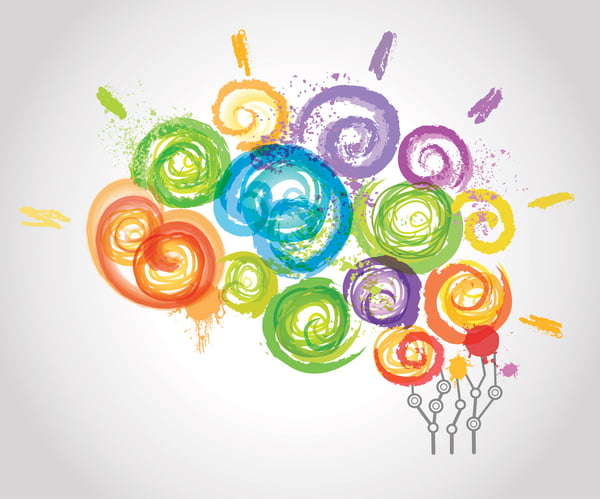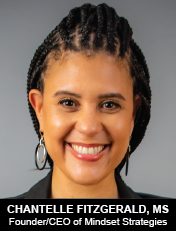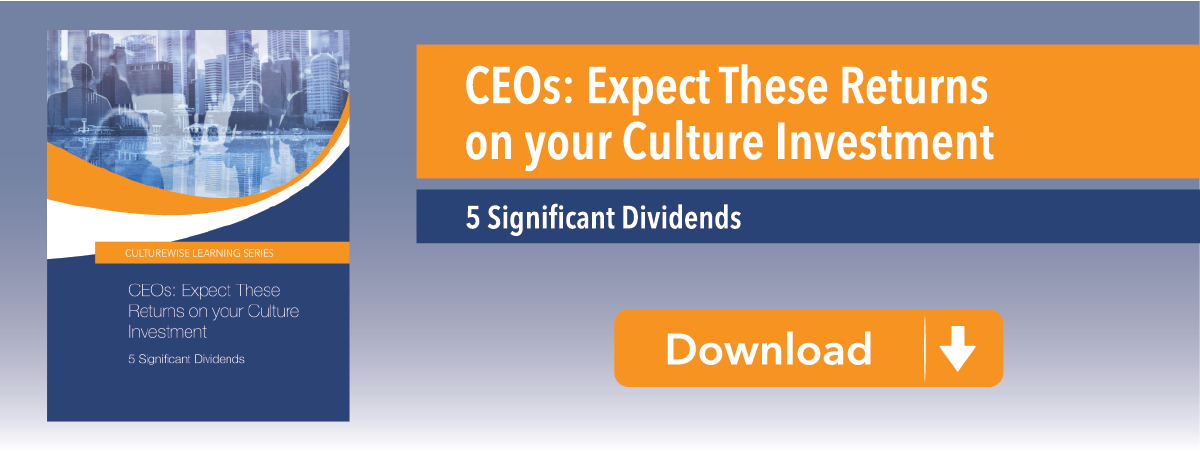
How Mindfulness and Emotional Intelligence Can Reduce Workplace Inequality and Support Healthy Organizational Culture

Mindset Strategies founder Chantelle Fitzgerald developed her ground-breaking organization after taking a multi-faceted professional journey. Her career has included working as an international educator, leading a pharmaceutical sales team, and serving in development for numerous non-profit companies after earning a master’s degree in that field.
Fitzgerald’s comprehensive background provided her with a unique perspective of what it’s like to be part of various business settings. Ultimately, she not only accumulated industry-specific skills from vastly different professional environments, but she was also able to identify striking commonalities.
The universal characteristic that resonated with her the most was the experience of marginalized identities within a workforce.
Fitzgerald encountered the professional predicament that people of color and women face in every field. It became clear to her that workplace inequity was equally in play in the corporate and non-profit sectors, and she saw how it prevented talented people from reaching their potential.
Further, it became clear to her that an organization that is not diverse, inclusive, and focused on the wellness and wellbeing of their employees can’t remain competitive in an everchanging global workforce.
Charting a New Course
In 2017, Fitzgerald began to look for a new professional direction that would provide her with a greater sense of purpose and belonging. She notes, “My pandemic moment came five years before the pandemic,” acknowledging the millions of workers now looking for more meaningful and rewarding work after two years of reevaluating their careers.
At first, Fitzgerald sought to mitigate the effects of the professional environment imbalance in her own career by taking a mindfulness-based stress reduction course. Then, as she developed a deeper understanding of the topic, mindfulness became an integral part of her journey, leading her to the “aha” moment that set her on her ultimate path.
Fitzgerald made it her mission to improve outcomes for organizations and the people in them who are often overlooked as they try to chart their career trajectory.
Instead of using traditional means to counter these challenges, she chose to come at them from an innovative direction. She became certified in mindfulness and emotional intelligence and developed a keen insight into how these concepts can help improve diversity, equity, inclusion, and belonging (DEIB) efforts in the workplace.
Using her new credentials, Fitzgerald began to train others about these topics and has facilitated numerous workshops to help people within organizations dig deeper into themselves. She uses these sessions to guide people to adjust their mindsets so they can be more present. Then she helps them recognize their biases and behaviors when encountering colleagues who present differently from them. As she points out:
“Our immediate biases, when dealing with others, can oftentimes be unconscious. If we’re not present enough to know what we’re even saying or thinking in our heads, how can we be more empathetic, compassionate, and kind toward our fellow employees who might not look or sound like us?
It is imperative to be present and aware of our thoughts so we can more intentionally transform our behavior to be more inclusive.”
Inequity in the Workplace
Fitzgerald is on the cutting edge of helping remediate a critical issue that, as she identified, is pervasive in the work world. To illustrate:
- 74 percent of employees who responded to a Harvard Business Review study said they work at organizations that lack diversity in leadership positions.
- 45 percent of American workers experienced some type of discrimination in the past year, according to Gallup.
It’s not that companies aren’t aware of the need for DEIB initiatives; the problem is in how they deal with them.
The public’s growing understanding of cultural inequity has moved numerous organizations to ramp up their DEIB policies. Consequently, many companies are actively diversifying their workforce to include more people from different backgrounds on their staff.
But too often, efforts to address discrimination appear to be more about appearances than a genuine desire to change how people operate. Increasing the number of marginalized individuals in a workforce will not significantly alter an organization’s culture.
Companies also need to focus on evaluating and shifting their staff’s prevailing behaviors and attitudes so that it’s clear to every employee that they are welcome, appreciated, and valued for who they are and what they bring to the organization.
Fitzgerald launched Mindset Strategies as a leadership development firm that focuses on DEIB issues and supports CEOs to foster an atmosphere where people feel respected, supported, heard, and seen. She and her team guide executives and staff to consider the DEIB landscape in their organizations through a lens of mindfulness and emotional intelligence. Fitzgerald explains:
“We believe that to really create a culture of equity and belonging, we must first be present with our own cultural humility. We should ask ourselves,
‘Am I aware that my fellow employees bring different cultural experiences and backgrounds to work and am I open and humble enough to learn about others and accept them for who they are?’
If we can start to cultivate more presence in our own cultural humility, we can make a meaningful impact in workplace culture.”
Fitzgerald expanded Mindset Strategies by introducing the Leadership Institute for Black Women. This program assists mid-level Black women leaders to connect with mentors and develop skills that are critical for their success.
Psychological Safety
Harvard Business School Professor Amy Edmondson defines psychological safety as “an absence of interpersonal fear.” She explains that when it’s present, people feel they can speak up without the risk of punishment or humiliation.
Edmondson coined the term in a 1999 journal article. Since then, psychological safety has become “well established as a critical driver of high-quality decision-making, healthy group dynamics and interpersonal relationships, greater innovation, and more effective execution in organizations,” as she noted in Harvard Business Review.
Yet, as vital as it is to individual and corporate success, psychological safety is astonishingly lacking in many workplace environments. For example, a McKinsey survey found that only a small percentage of business leaders demonstrate the positive behaviors that can instill this climate in their workforce.
Chantelle Fitzgerald is out to change that statistic, one organization at a time.
She works with business leaders and their staff to help them discover the barriers limiting DEIB progress and preventing psychological safety from flourishing. Using mindfulness and emotional intelligence techniques, she helps companies peel back the layers of bias to redirect behaviors and attitudes. Then she provides resources and training to help organizations create a psychologically safe environment for every member of their team.
Chantelle Fitzgerald at the 2022 CultureWise Summit
CultureWise is proud to welcome Chantelle Fitzgerald as one of the featured presenters at the Annual CultureWise Summit in November, where she’ll share her innovative and insightful approach to solving DEIB problems within organizations. She’ll also discuss applying the same tactics to other business situations in which two cultures need to successfully interact, such as mergers and acquisitions or collaboration between different departments.
To give Summit attendees a better understanding of her process, she’ll lead an experiential learning workshop based on the “When Cultures Meet” program developed by Barry Oshry. In this interactive session, she will ask two groups of people representing distinct cultures, each with their own rules, to “meet” to complete a task. This exercise results in illuminating behaviors that are usually under the surface or a blind spot.
The CultureWise Summit provides an unprecedented opportunity to interact directly with executives from companies with high-performing cultures. In addition to watching compelling presentations on topics that impact every business, attendees will hear panel discussions, participate in breakout sessions, and engage in meaningful networking events.
Registration for the 2022 Annual Culture Summit is currently open, but space is limited. Be sure to take advantage of this unique opportunity to develop new alliances and share best practices while learning innovative ways to strengthen company culture.
And subscribe to the CultureWise weekly newsletter to access the latest informative articles, videos, and podcasts about company culture.
Mindfulness
Mindfulness is the practice of deliberately focusing attention on something in the present moment without evaluating it. According to Psychology Today, mindfulness is comprised of two elements:
- Awareness: The knowledge and ability to focus attention on one’s inner processes and experiences
- Acceptance: The ability to observe and accept—rather than judge or avoid—those streams of thought
Psychology Today explains that the goal of mindfulness is to cultivate perspective on one’s consciousness and identity, which can generate greater mental peace.
Mindfulness is rooted in Buddhist and Hindu teachings and was introduced in Western culture in the late 1970s by Jon Kabat-Zinn, a professor at the University of Massachusetts Medical School. He developed a program called Mindfulness-based Stress Reduction to treat chronic pain. As the concept of mindfulness spread into mainstream science and medicine, it became a pivotal technique in various therapies.
Emotional Intelligence
Emotional Intelligence (EI) is usually defined as the ability to perceive, use, understand, and manage emotions. People with high EI can:
- Recognize their emotions and those of others
- Use emotional information to direct thinking and behavior
- Understand and label different feelings
- Adjust emotions to adapt to circumstances
The term originated in the 1960s in scholarly journals and gained popularity in 1995 after Emotional Intelligence by Daniel Goleman became a bestseller.
Goleman specifically defined EI as the array of skills and characteristics that drive leadership performance. He also focused on the notion that although early life experiences shape EI, it can be nurtured and strengthened throughout adulthood with positive results in all areas of people’s lives.

